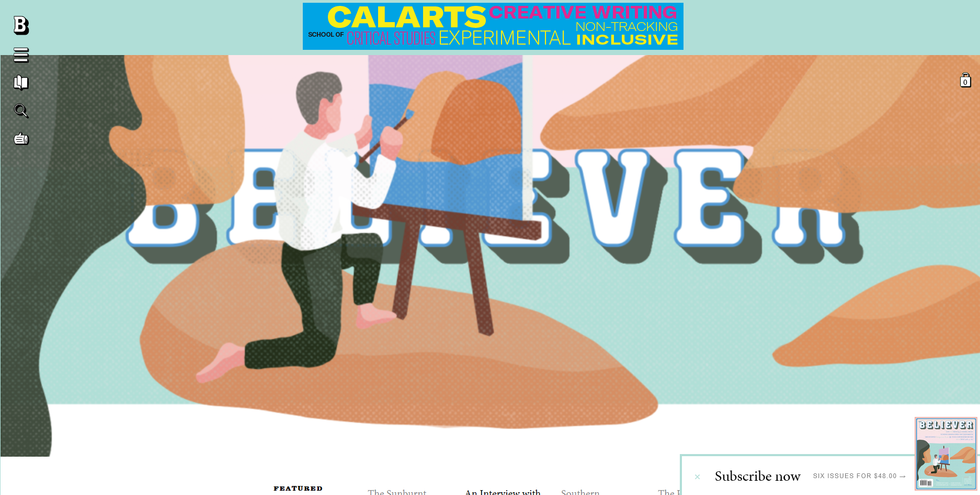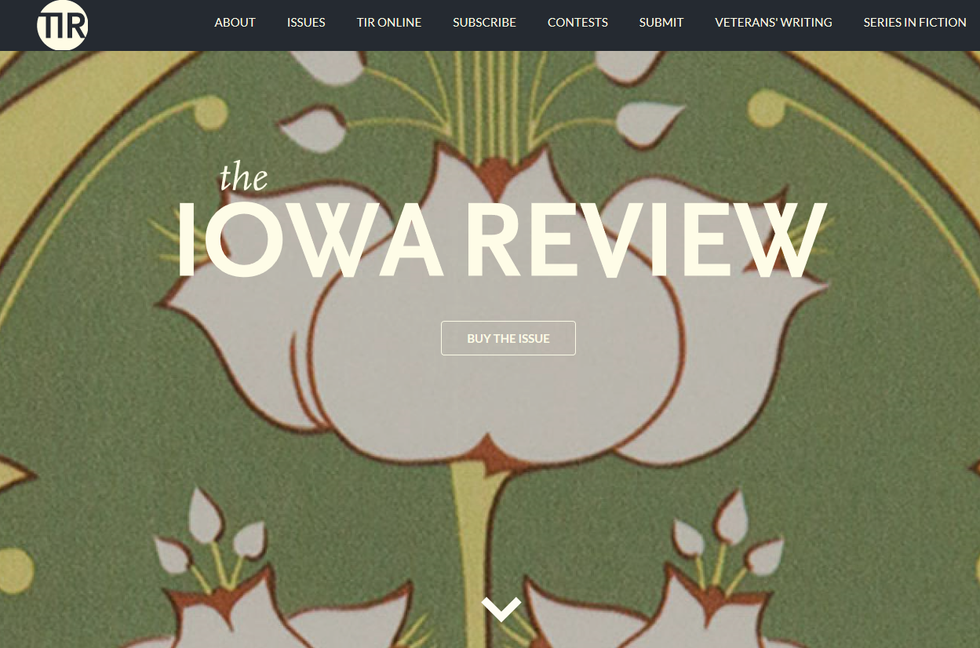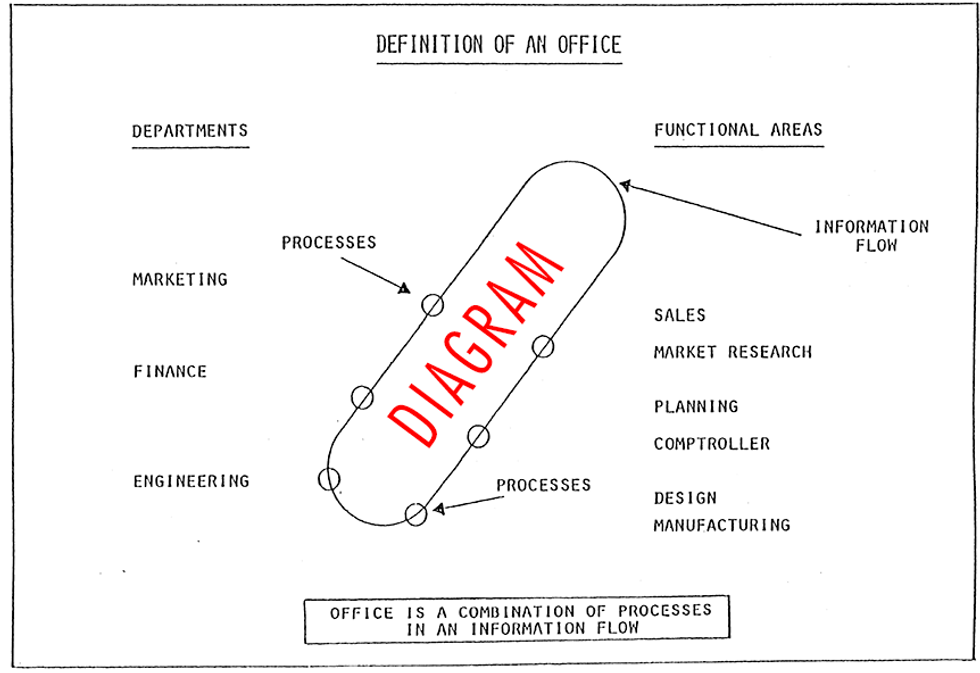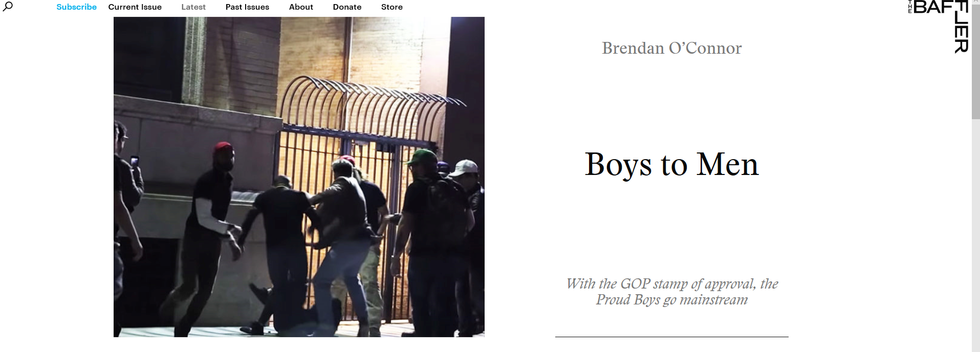A literary magazine is periodical that is dedicated to literature and often contain other art. These magazines are a published collection of poetry, prose, essays, interviews, criticism, letters, and perhaps even some words from your favorite author. An underappreciated, and often underfunded, art, literary magazines is what people who want to read, but struggle with time, should give a chance. If you were an avid reader in high school but growing up took away your love for books, and your time, literary magazines and their rich, but short, pieces is what you should defer to. And if you're not sure that there is a literary magazine with the style of writing you prefer, I promise there is one for you.
Lit mags come in all shapes and sizes and are for all tastes. If you prefer something highbrow and prestigious, "The Paris Review" will be your go to. Something that's literature but has science as it's focal point? "n+1" will be your best friend. If you'd rather have a literary magazine that tells you where to find other literature and other magazines, "Literary Hub" is the place to check out online. I prefer one of America's top leading lit mags, "Tin House," and the style of the pieces they publish; good enough for the above average reader, but not for the academic graduate student who needs to write a close reading on pieces from a lit mag. Literary magazines have all sorts styles and there is literally no way there's not one for everyone.
If you're an aspiring writer who doesn't have time for reading ("If you don't have time to read, you don't have the time (or the tools) to write. Simple as that." - Stephen King), then literary magazines are a great way to establish your name. Submit good pieces, submit often, but also know what you're submitting to.
Not sure where to start? Here are a variety of lit mags, what they love to publish, and what their readers love about them.
1. "The Paris Review"

As stated before, more of a highbrow mag, "The Paris Review" has published authors such as Stephan King and Samuel Beckett, but isn't opposed to publishing no-names. Generally, this lit mag tries to focus more on fiction pieces and poetry rather than criticism of authors and pieces. If writing submitted is more than amazing and thought provoking, often with a broader and deeply hidden message, it has the slight chance of making it; "The Paris Review" is the third most popular literary magazine in America, making the competition to actually appear pretty tight.
2. "The Believer"

"The Believer" is a literary magazine that loves to publish works with certain demographics in mind. They come out with music and art editions of their magazines, allowing people of all preferences to enjoy the latest critique or interview of their favorite artist. I found it to be averagely accessible writing, nothing that caused me to use Google, but also nothing that caused me to put the lit mag down in hopes of a more sophisticated read. That is not to say that "The Believer" isn't for sophisticated readers--if someone is a fan of this magazine, they open it with the intention to learn and "The Believer" provides just that.
3. "The Iowa Review"

"The Iowa Review" is one of my favorite of all time. Their poetry and prose within the magazines stick with you and leave you pondering the different interpretations possible. Everything they publish feels to have a broader theme or message. This magazine is, characteristically in my opinion, devoid of art through majority of the lit mag. The pieces aren't highbrow, but they are for a reader who is willing to both place things as face value as well as through the eyes of a close reader. The diversity of pieces that somehow all carry the same tone is what calls me to dub "The Iowa Review," as my favorite.
4. "LitHub"

"LitHub" is the place to go in order to be redirected. It is literally the hub of all literary things. It pushes the latest up and coming authors while letting you know what your existing authors are up to. This literary magazine does not have a print form and is available only online. It will not have a print form in the foreseeable future as that would take away its constant up-to-date style of "LitHub" and take away the power of easily accessible online pieces.
5. "Rookie"

"Rookie" started in a unique way, originally being created by a sixteen-year-old fashion blogger, Tavi Gevinson. The writing seen in it is extremely casual and relaxed. Many of the pieces you read will feel geared towards the middle school reading level or be in language that makes you feel as if you're reading a diary. "Rookie" has come under some fire for being geared towards predominately white teenaged girls, which they are currently working to address their audience range, but when you created a magazine while being a very young white teenage girl, you can't fault her too much. Regardless, Tavi is working on expanding her magazine to be more inclusive and one cannot help but admire her success and improving adaptability.
6. "The Diagram"

"Diagram" is, in the most basic sense, diagrams. Sometimes they will have a little story written beside it, other times the diagram is the story itself. Math and science minded people, or even people who just love diagrams, will be more inclined to read and grow to love the puzzles that "Diagram" gives it's reader.
7. "The New Yorker"

The most popular literary magazine in America, "The New Yorker" is known for publishing the most present and relevant pieces possible. The art within the magazine always represents the issues that are being faced that week, my favorite cover being the week of 9/11. The pieces seen within "The New Yorker" always speak to a broader message and gives unlikely insights to certain issues being faced today. Almost like a newspaper, this lit mag is reliant and devoted to giving its reader's quality and intellectually stimulating content at a ridiculously rigorous pace.
8. "The Baffler"

"The Baffler" is a literary magazine dedicated to criticism. Focusing on business, politics, and cultural norms, "The Baffler" tears apart every notion of why things are accepted the way they are. This lit mag absolutely destroys opinions and places new ones in their place, making quite the enjoyable read for an open mind.
9. "Guernica"

"Guernica," the lit mag and not the Picasso painting, is all that it says to be. It's a very realistic and intense read, one that leaves readers wanting to know more of the abstract comparisons that the writings it so often publish have. Each piece feels thoughtful, purposeful, but not something you'd have thought of on your own. Quite an enlightening litereary magazine.
















